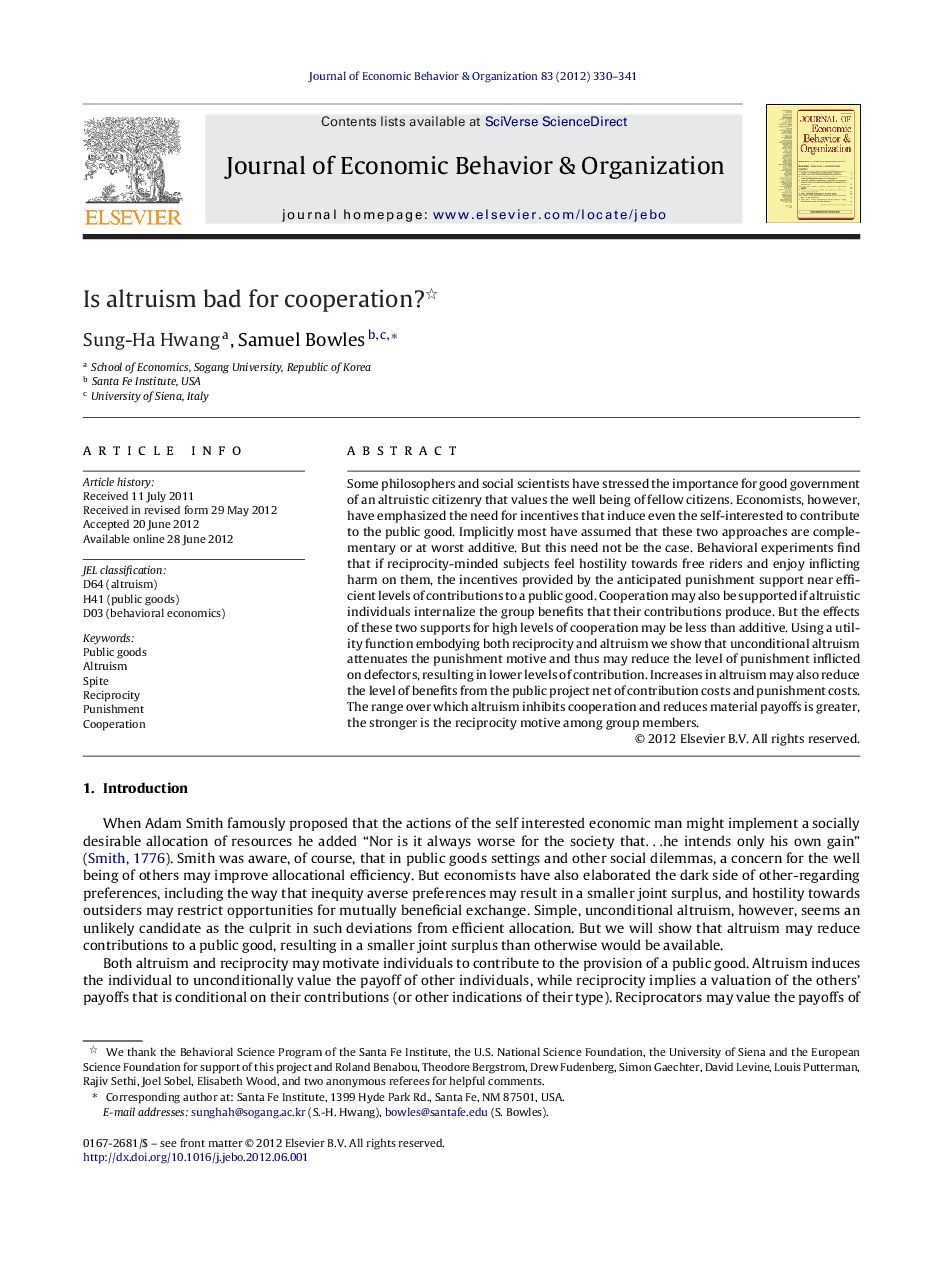| Article ID | Journal | Published Year | Pages | File Type |
|---|---|---|---|---|
| 883676 | Journal of Economic Behavior & Organization | 2012 | 12 Pages |
Some philosophers and social scientists have stressed the importance for good government of an altruistic citizenry that values the well being of fellow citizens. Economists, however, have emphasized the need for incentives that induce even the self-interested to contribute to the public good. Implicitly most have assumed that these two approaches are complementary or at worst additive. But this need not be the case. Behavioral experiments find that if reciprocity-minded subjects feel hostility towards free riders and enjoy inflicting harm on them, the incentives provided by the anticipated punishment support near efficient levels of contributions to a public good. Cooperation may also be supported if altruistic individuals internalize the group benefits that their contributions produce. But the effects of these two supports for high levels of cooperation may be less than additive. Using a utility function embodying both reciprocity and altruism we show that unconditional altruism attenuates the punishment motive and thus may reduce the level of punishment inflicted on defectors, resulting in lower levels of contribution. Increases in altruism may also reduce the level of benefits from the public project net of contribution costs and punishment costs. The range over which altruism inhibits cooperation and reduces material payoffs is greater, the stronger is the reciprocity motive among group members.
► Distinct pro-social preferences need not be synergistic, or even simply additive. ► Reciprocity and unconditional altruism both are motives for public goods contributions. ► But altruism may indirectly reduce contribution by deterring punishment of free riders. ► The range over which altruism lowers contributions is larger the more reciprocal are the citizens. ► A cooperative citizenry: Old Testament reciprocators or New Testament altruists (but not both!).
